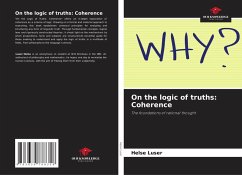
The Problem of Mental Causation: Fact or Fiction?
Versandkostenfrei!
Versandfertig in 6-10 Tagen
22,99 €
inkl. MwSt.

PAYBACK Punkte
11 °P sammeln!
The mind-body problem is at the center of the philosophy of mind, and one of the most fundamental components of this problem is the nature of mind-body interaction. Suppose you are thirsty and want something to drink. You remember that there are sodas in the refrigerator, and you go to the kitchen and get a Coke. In this scenario, there are four mental states: you feel thirsty, you want something to drink, you remember that there are sodas in the refrigerator and you believe drinking Coke can quench your thirst. Together, these four mental states bring about your action. One long-standing phil...
The mind-body problem is at the center of the philosophy of mind, and one of the most fundamental components of this problem is the nature of mind-body interaction. Suppose you are thirsty and want something to drink. You remember that there are sodas in the refrigerator, and you go to the kitchen and get a Coke. In this scenario, there are four mental states: you feel thirsty, you want something to drink, you remember that there are sodas in the refrigerator and you believe drinking Coke can quench your thirst. Together, these four mental states bring about your action. One long-standing philosophical tradition has held that the most natural way to understand this bringing about is as a causal connection between our mental states and other mental states or our actions. However, what does "bring about" exactly mean? Neural science and psychology have different answers, because there is a fundamental gap between neural processes and feelings . This book brings an overview of current theories on the discussion of mental causation.












